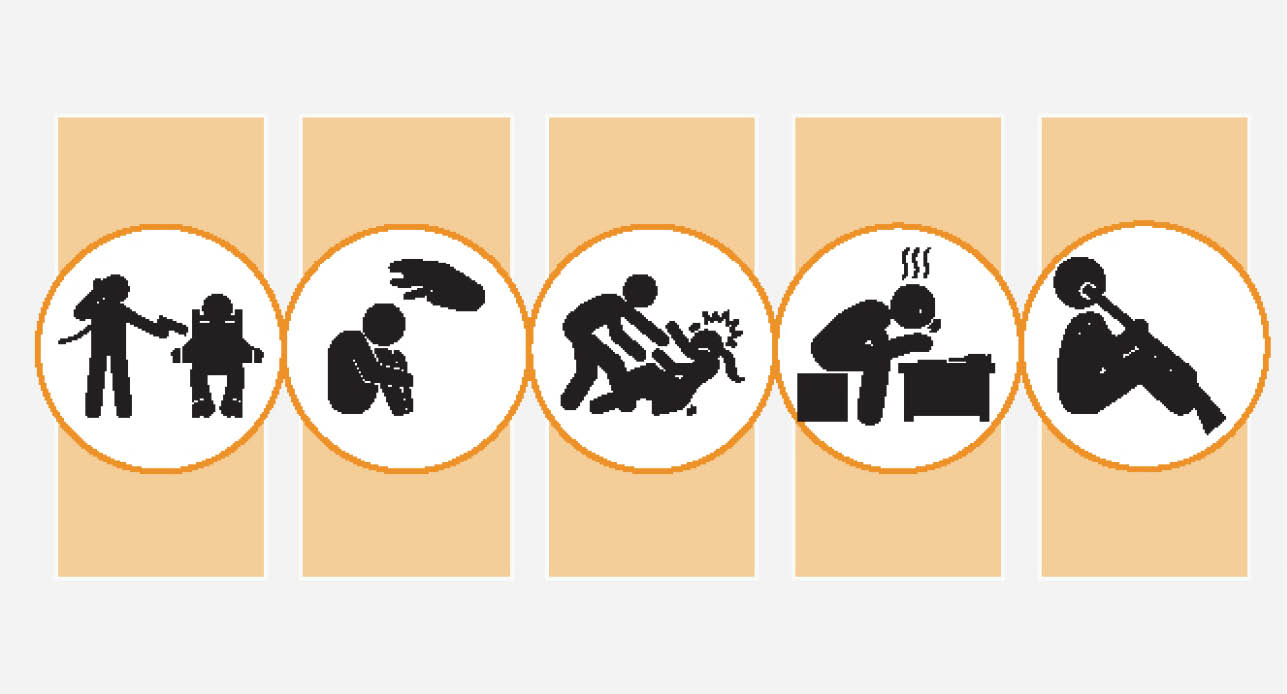There is hardly any part of Nigeria that, in recent times, is not confronted with one challenge or the other. The most critical and widespread is insecurity which include kidnapping, banditry, insurgency, armed robbery, organized killings, cattle rustling, farmers/herders’ conflicts and other forms of criminality.
The country’s social evils include alarming incidence of rape, drug addiction, human trafficking, child abuse, and suicide. These are aside of our infrastructural challenges that include dysfunctional education system, failed roads, poor health facilities, and a troubled power sector.
- Landmine kills 5 soldiers, injures 15 others in Borno
- How strike, COVID-19 wrecked education calendar
A critical analysis of the education sector reveals that the system has suffered so much from prolonged and perennial crises that include unstable academic calendars, obsolete learning facilities, ill-equipped laboratories and out-of-school-children phenomenon. In terms of socio-cultural challenges, our hurdles in the country include ethnicity, bigotry, greed, egotism, and crass materialism. Nigeria’s protracted economic problems find pragmatic expressions in inflation, abject poverty, smuggling, unemployment, pervasive corruption in the civil service, and of recent, retrenchment in the private sector. In most of these, the northern part of the country stands out as the worst hit especially at it concerns insecurity, economic travails, and social evils.
As a country where majority of citizens believe in God as Muslims or Christians, Nigeria is a place you find world-class clerics in Islam and Christianity. Nigerians are known to be passionate and sensitive about the religion they profess; sometimes to a level of wanting to be “holier than thou”. Muslim scholars from Nigeria are indeed reckoned with by the Custodian of the Two Holy Mosques for the formers’ depth of scholarship and commitment to the cause of Islam. The Vatican, too, cannot wish away Christian clerics from Nigeria.
If the fore-going presumptions are as true as they sound, it would be right to opine that Nigeria is the home of men of God. Assuming that this is true, one is persuasively prompted to wonder why a country full of men of God would be disparagingly bedeviled with very daunting challenges as critical and grave as Nigerians are currently experiencing. Worst still is that many of these challenges have remained intractable. “Are we paying a price” is, irresistibly, the biggest question on the lips of this writer.
Although leadership failure could be a significant factor, our individual and collective failures must not be ignored. Unfortunately, taking responsibility for our actions or inactions has never been part of our culture in Nigeria; as leaders or as followers. There’s ardent need for soul searching by all. Quran 8:53 and Quran 13:11 both assure us that “…Allah will never change the grace which He has bestowed on a people until they change what is in their (own) souls …” Nigeria was not as we find it today when the country had fewer resources and less expertise. Yet, the country prospered. Now that the country has more resources, it is as if every tide of development has been turned against us. But why? As the Qur’anic verse quoted above strongly affirms, something must have gone wrong with ourselves.
To further corroborate the message of the verse under reference, the text of Qur’an 30:41 may also be relevant. In it, Allah (SWT) states “Mischief has appeared on land and sea because of (the meed) that the hands of men have earned; that (Allah) may give them a taste of some of their deeds in order that they may turn back (from evil)”. It could, therefore, be inferred from the interpretation of this verse that our current state of predicament is a consequence of the evils we individually and collectively masterminded, supported or perpetrated. The result of evil, certainly, is evil. This suggests why we may be paying a price for what our hands have earned. Actually, there is country-wide injustice going on in the land. The perversity of man’s inhumanity against another in modern Nigeria is better imagined. It does not matter to many if other people’s rights are trampled in order for them or theirs to survive or succeed.
A lot of injustices, maltreatments and wickedness go on daily in Nigeria at official and personal levels of human social interaction. The mere listening to a single session of the “Berekete Family” programme on human rights radio alone gives you an idea of how people suffer from the cruelty of callous individuals, groups and institutions in Nigeria. If you have no access to listening to this popular radio programme, visit the complaints desk at the Public Complaints Commission, or the National Human Rights Commission, or go to witness proceedings at any court that has jurisdiction to hear civil and criminal cases. The current endemic wave of rape cases in the country with many of the victims as minors is a terrible crime for which a society that allows it could pay a costly price. God pays evil with evil.
The crime for which some nations in the past were perished seems to be the norm in today’s world of widespread injustices. Allah (SWT) reminds us in Qur’an 29:40 “Each of them we seized for a crime: of them, against some we sent a violent tornado (with showers of stones); some were caught by a (mighty) blast; some we caused the earth to swallow up; and some were drowned (in the water); it was not Allah who injured (and oppressed) them but they wronged themselves”. In his infinite mercy, Allah (SWT) has promised in Qur’an 16:61 that He grants respite to the community of Prophet Muhammad (SAW) to serve as ‘a window of grace’ for repentance, which explains why in spite of our waywardness, we are spared from instant destruction.
Now, are we really taking advantage of this God-given respite? Lamentations have never provided solutions to any set of crises. Is our seeking for forgiveness from Allah of our sins proportionate to the quantum of the sins we commit? How earnest are we in asking Allah (SWT) to forgive our wrongdoings? The ultimate goal by which Allah rewards evil with evil is to re-claim man from evil and thereafter restore him to the righteous path. Let us all approach Allah remorsefully, confess our transgressions and repent whole-heartedly. Clerics and traditional leaders should collaborate to organize special prayers to seek Allah’s intervention in all our challenges as a nation. Nothing should stop government from supporting this cause. May Allah (SWT) guide us to retrieve our souls from the devil’s kingdom and salvage Nigeria from all its challenges, amin.

 Join Daily Trust WhatsApp Community For Quick Access To News and Happenings Around You.
Join Daily Trust WhatsApp Community For Quick Access To News and Happenings Around You.


